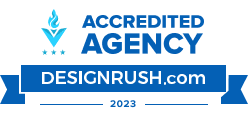Get in touch
555-555-5555
mymail@mailservice.com
In today's digital landscape, a strong online presence is essential for therapists and counsellors seeking to connect with potential clients. Search Engine Optimization (SEO) plays a significant role in enhancing your website's visibility, ensuring it ranks higher in search engine results and reaches those looking for your services. By implementing a strategic SEO approach tailored to your therapy practice, you can effectively increase your online discoverability and attract more leads.
In this beginner-friendly SEO checklist, we'll guide you through the essential steps to help therapists and counsellors optimize their websites for search engines. From conducting keyword research to crafting valuable content and prioritizing user experience, we'll provide you with the foundational knowledge required to begin your SEO journey. Armed with these practical tips and techniques, you can take steps towards enhancing your digital presence and reaching potential clients with ease.
1. Keyword Research: Identify Relevant Terms and Phrases
The first step in optimizing your therapy website is to conduct comprehensive keyword research to identify terms and phrases potential clients are using when searching for services like yours. Use keyword research tools, such as Google Keyword Planner or Ubersuggest, to uncover relevant keywords within your niche. Focus on long-tail keywords (longer, more specific phrases) that have lower competition and higher conversion potential. Identify keywords related to your practice's specialties, services, or specific conditions you treat. Incorporate these keywords strategically throughout your website's content without overstuffing, as search engines may penalize excessive keyword usage.
2. Optimize On-Page Elements: Title Tags, Meta Descriptions, and Headers
On-page optimization involves tweaking various elements of your website to ensure search engines can easily understand its content and relevance. Three critical on-page elements include title tags, meta descriptions, and headers.
- Title Tags: These tags define the title of each webpage and appear as the clickable headline in search engine results. Ensure each page on your website has a unique title tag that includes relevant keywords, while still being concise and informative.
- Meta Descriptions: These brief descriptions provide a summary of each webpage's content and are displayed below the title tag in search engine results. Craft unique meta descriptions for each page, incorporating target keywords and a compelling overview to entice users to click.
- Headers: Organize your content using header tags (H1, H2, H3, etc.) to break up sections and provide a hierarchy of information. Prioritize your primary keyword in the H1 tag (main heading) and use secondary keywords in H2, H3, or subsequent header tags when appropriate.
3. Create High-Quality, Valuable Content
Content plays a crucial role in SEO, as search engines prioritize websites offering valuable, relevant information to users. Engaging, informative articles, not only help establish your expertise in your field but also contribute to improved search engine rankings.
Regularly update your website with blog posts, covering topics directly related to your practice or addressing your target audience's specific concerns (e.g., mental health resources, self-help tips). Aim for a minimum word count of 500 words per article, ensuring readability and cohesiveness. Naturally incorporate target keywords within the content, encompassing them in the title, headers, and body text when relevant.
4. Optimize Website Images: Filename, Alt Text, and File Size
Images on your website can contribute to your SEO performance when optimized correctly. Properly formatted images improve user experience and help search engines better understand the context of your content.
- Filename: Give your images descriptive filenames that accurately represent their subject matter and include relevant keywords.
- Alt Text: Image alt text is a short description that provides contextual information and helps visually impaired users understand the content. Include target keywords within the alt text sparingly but ensure the description remains accurate and helpful.
- File Size: Large image files can slow down your website loading time, negatively impacting user experience and search engine rankings. It's essential to compress images using tools like ImageOptim or ShortPixel to reduce file sizes without compromising quality.
5. Focus on User Experience: Site Speed, Mobile-Friendliness, and Ease of Navigation
User experience (UX) is a critical aspect of SEO, as search engines prioritize websites offering seamless browsing for users. To optimize UX, consider your website's loading speed, mobile-friendliness, and ease of navigation.
- Site Speed: Slow loading times can deter users and harm your search rankings. Use tools like Google PageSpeed Insights or GTmetrix to analyze your website's speed and identify potential improvements, such as minimizing redirects or enabling browser caching.
- Mobile-Friendliness: With an increasing number of people browsing the web on mobile devices, it's crucial to ensure your website is responsive and provides an optimal experience across all devices. Use Google's Mobile-Friendly Test for insights on your website's mobile performance and optimization suggestions.
- Ease of Navigation: A well-organized website layout and clear navigation help users quickly locate the information they seek, making them more likely to explore your site and consider your services. Include a simple menu with intuitive categories and prioritize essential pages (e.g., About, Services, Contact).
6. Build Quality Backlinks: Increase Website Authority and Credibility
Backlinks, or incoming links from other websites, are a significant factor in search engine ranking algorithms. High-quality, relevant backlinks help improve your website's authority, credibility, and overall SEO performance.
To acquire backlinks, consider reaching out to reputable websites or blogs in your industry, offering to contribute guest posts or collaborate on projects. You can also engage in local therapy community events, participate in online forums, or join professional associations, providing you opportunities to gain valuable exposure, networking, and backlinks.
Empower Your Therapy Practice with Expert SEO Services
Optimizing your therapy website for search engines is a critical element in increasing your online visibility and attracting more potential clients. By following this beginner's SEO checklist, you'll be well on your way to creating a stronger digital presence and standing apart from the competition in your niche.
If you're ready to take your SEO efforts to the next level and effectively boost your practice's online visibility, consider partnering with the experts at Thriving Mind Marketing. Specializing in
digital marketing solutions for therapists and counsellors, their team will help you navigate the complexities of SEO and implement strategies designed to improve your website's search rankings. Contact the team at Thriving Mind Marketing today to start reaping the benefits of an optimized and engaging online presence for your therapy practice.
More Tips To Help You Build Your Practice Online
Get a Free Consultation
Want to elevate your therapist digital marketing?
Your next step?
Book a free 15-minute fit call.
Unlock the heart of your therapy practice online. Your professional appearance online will be a source of hope to people in need. Your passion, our expertise, let's transform lives together. Read more about why this is important to me.
Contact info:
All payments made through Stripe






